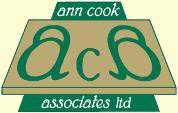Internal Quality Assurance (IQA) Award (previously V1)
Introduction
In Jan 2011 new internal quality assurance qualifications replaced V1. A combination of three units (C&G Units 401, 402 and 403) provide flexibility for individuals to develop and achieve three different qualifications.
Selecting the right qualification
Level 4 Award in Understanding the Internal Quality Assurance of Assessment Processes and Practice
C&G Unit 401: A knowledge only unit for people who would like to know about the internal quality assurance (IQA) of qualifications
e.g. experienced Assessors who are interested in progression or Centre managers, HR or quality assurance personnel.
Level 4 Award in the Internal Quality Assurance of Assessment Processes and Practice
C&G Units 401 and 402: for people who conduct IQA for qualifications (vocational training or competency in the workplace) by planning, arranging and undertaking monitoring activities e.g. sampling products, observing Assessors, discussion with candidates and witnesses, supporting Assessors and evaluating their occupational and assessment competency, implementing appropriate CPD.
Level 4 Certificate in Leading the Internal Quality Assurance of Assessment Processes and Practice
C&G Units 401, 402 and 403: for people who lead the IQA team, having responsibility for managing the quality of the assessment process, practice and performance of Assessors and who develop systems to support this and lead visits from outside agencies
e.g. Awarding Organisations.
For those qualifications with more than one unit, following training, assessment will be undertaken ‘holistically’, which means that evidence of ‘doing the job’ (402 and/or 403) will also contribute towards the knowledge unit (401).
These Awards are relevant for -
- Accredited Centres wishing to have more qualified IQAs
- Experienced Assessors who wish to progress their career in the field of assessment and verification
Outcome
Our programme is structured to -
- Assist an informed decision on which qualification is most appropriate
- Deliver formal training
- Allow time for the implementation and practice of these new skills before undertaking assessment, if required
- Advise the Centre / Employer on how to support and develop the Candidate IQA, and assist in the provision of evidence for the qualification
- Assess the Candidate IQA; providing advice and guidance on how to meet the requirements of the qualification
- Be delivered nationally and 'in house', according to demand
Further Information
If you would like to receive information about our programme for these qualifications, or to discuss it further with Ann Cook, please contact us.


